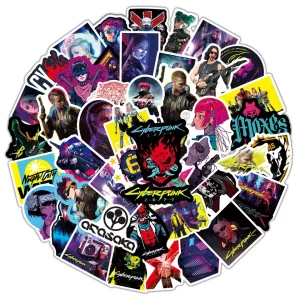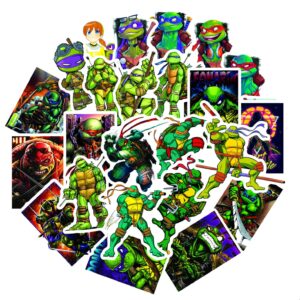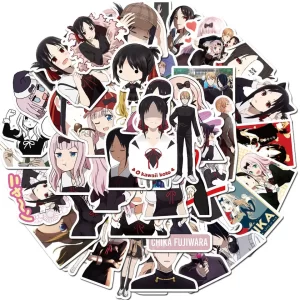Atomic Heart is an unapologetically single-player game that takes you on a thrilling journey through a beautifully crafted world. This alternate-history shooter is cut from the same cloth as BioShock and Wolfenstein, but it’s far from being a clone.
The developers of Atomic Heart, Mundfish, have created a world that’s both confident and compelling. They’ve drawn inspiration from some of the greatest shooters in history, like Half-Life, Portal, and Arkane’s first-person stealth games, and they’ve mixed these elements with their unique vision. The result is a game that stands out from the crowd and is sure to leave a lasting impression.
While the story may not stick its landing, the journey from point A to point B is a sight to behold.
Granted, Atomic Heart is not perfect, and it has its flaws. But the game’s focus on creating an intricate world for players to explore is remarkable. The combat options are impressive, and the enemies are elaborately designed with biological and robotic features that make for some spectacular battles. While the story may not stick its landing, the journey from point A to point B is a sight to behold.

In this world, the game begins just before the public unveiling of Kollectiv 2.0. This new and improved system will allow humans to connect to the hive-mind through a device wired straight into their brains. With this Thought device, they will have access to the hive-mind’s vast knowledge and the ability to control robots remotely. It’s like the Internet but plugged directly into your brain and available 24/7.
Major Sergei Nechaev, an agent who serves Sechenov, fully believes in this dream of a world where everyone has equal access to information and each other. Little does he know that the future holds unforeseen consequences for such technological advancements. As he is assigned to investigate a disturbance in Facility 3826, the Soviet Union’s foremost scientific research hub, he is joined by Charles, a sentient glove that endows him with a range of polymer-fed technopowers such as telekinesis and cryokinesis. Charles also acts as a sounding board for Sergei’s oftentimes annoying and borderline abusive collection of quips and unfunny comebacks.

With the benefit of hindsight, we know that the Internet has its share of downsides, especially in the case of Kollectiv 2.0. Despite the potential dangers, Sergei remains steadfast in his belief that this new technology will bring about a utopian society. But as he delves deeper into the investigation, he will come to discover that not everything is as it seems, and the consequences of playing god with technology may be too great to bear.
Unfortunately, Sergei’s character doesn’t evolve or offer any introspection, which can be frustrating and disappointing for players.
The exploration of free will in video game stories is not a new concept, and Atomic Heart doesn’t add anything particularly innovative to this topic. Unfortunately, the protagonist, Major Sergei Nechaev, hinders any attempt to delve deeper into this concept. He’s more concerned with fighting robots and finding someone to blame than contemplating any larger moral implications. Despite Charles’ attempts to get Sergei to think about the broader implications of their mission, Sergei dismisses any deeper thought and refers to leaving the thinking to Sechenov. Unfortunately, Sergei’s character doesn’t evolve or offer any introspection, which can be frustrating and disappointing for players.

Adding to the frustration is Sergei’s deeply unlikable personality. He’s rude and abrasive to those around him, including the helpful Charles, and there’s no explanation for this behavior. It becomes clear that you’re playing as a truly unpleasant person, making it difficult to empathize with or root for him. When Sergei opens his mouth, it’s hard to feel good about playing as him, and you may feel more sympathetic towards the characters who have to tolerate his barrage of unfunny insults.
While the robots and mutants are faster than Sergei, he can easily reposition himself using his dash ability, which creates a frenetic and dynamic combat experience.
Despite these issues, the combat in Atomic Heart is a highlight. Sergei may be a terrible person, but he’s a skilled fighter. Armed with various weapons and polymer abilities, he’s a force to be reckoned with. The combat system is relatively simple at first but becomes more engaging as more enemy types are introduced, each with its own attack patterns and weaknesses.

While the robots and mutants are faster than Sergei, he can easily reposition himself using his dash ability, which creates a frenetic and dynamic combat experience.
Fighting enemies over and over again can become tedious
That said, combat can become a bit of a grind between the dense swarms of enemies and the hovering repair bots that swoop in to bring them back to life. Above ground, the long line-of-sight and overwhelming numbers of enemies often leave us running or driving away from fights rather than diving in or attempting to use stealth. Though we’re free to explore the decent-sized slab of open world that connects the underground sequences, fighting enemies over and over again can become tedious. It’s not until P-3 grows stronger and we gain more abilities that the robot hordes become a little less intimidating.

Unlocking and upgrading abilities is a critical part of Atomic Heart, but it can also feel like a chore. While the game does its best to keep the process fast by letting us vacuum up resources with an industrial shop vac-like hand, collecting resources can become repetitive. We find ourselves searching through the same desks and cabinets in slightly different arrangements across hundreds of different rooms, which can feel like a waste of time.
It’s frustrating to see the main character share the same annoyance as us, without any meaningful changes being made to the gameplay.
One of the biggest issues with Atomic Heart is its reliance on hackneyed fetch quests. The main character cynically complains about collecting four canisters for a nonsensical door-locking mechanism that would never get past any architectural committee. This kind of attitude isn’t a free pass to proceed with boring and lazy game design. It’s frustrating to see the main character share the same annoyance as us, without any meaningful changes being made to the gameplay.
However, there are some bright spots in Atomic Heart, particularly in the underground chambers. They’re eerie, deadly, and mostly devoid of life except for the mutant freaks with skulls shattered into fanged, floral arrangements or the dead bodies communicating through fading brain implants. While the game does rely heavily on repeating the same door lock minigames, the bespoke platforming puzzle chambers and one-off brainteasers offer a welcome change of pace. The clever visual puzzle in the ornate theatre filled with robotic performers is a standout example of Atomic Heart’s potential. It’s a shame that the game’s fetch quests couldn’t have received the same level of attention and creativity.

Atomic Heart is an uneven experience. On one hand, the alternate history of the world is fascinating and invites a deep conversation about free will and collectivism. On the other hand, the game’s unlikable protagonist repeatedly thwarts any meaningful exploration of these themes. Seeing such an interesting concept get bogged down by poor character development is frustrating.
Despite these flaws, Atomic Heart will certainly appeal to some players. Those looking to relive the experience of BioShock Infinite may find something to enjoy here. However, it’s hard to give a straightforward recommendation for this game. Many aspects just don’t fit together neatly, which can create a disjointed and confusing experience. It’s not an easy game to recommend, even if some of its parts are individually intriguing.
Summary
In many ways, Atomic Heart feels like a missed opportunity. The game has all the ingredients for a fascinating and thought-provoking experience, but it never quite manages to bring them together satisfactorily. It’s a shame to see such potential go to waste, but that’s the reality of this game. While it’s not a disaster, it’s also not the standout title many hoped for. Ultimately, Atomic Heart is a game that will leave some players disappointed and others satisfied, but it’s unlikely to leave a lasting impression on anyone.













